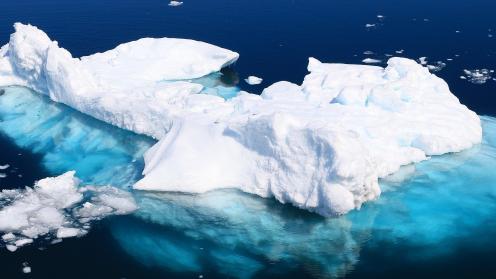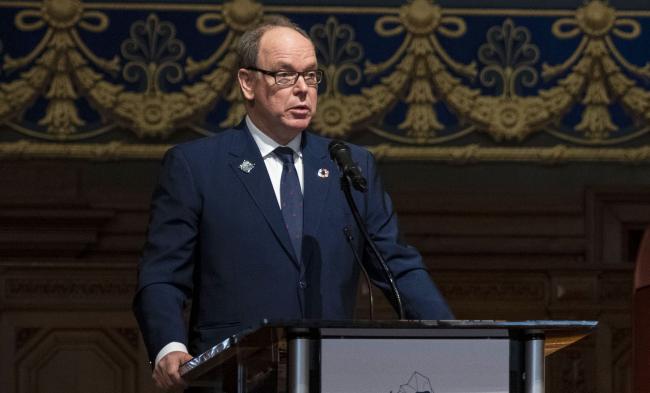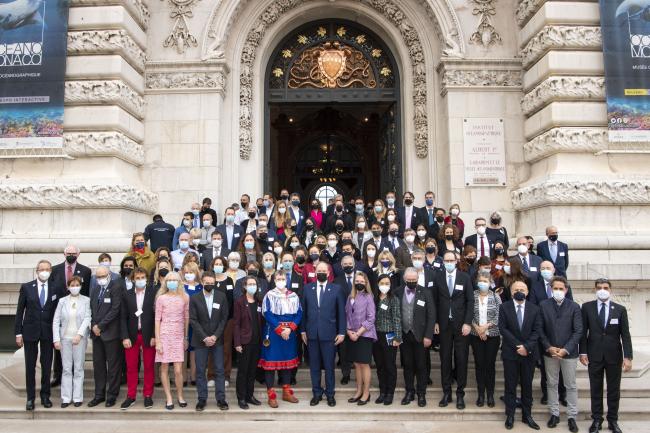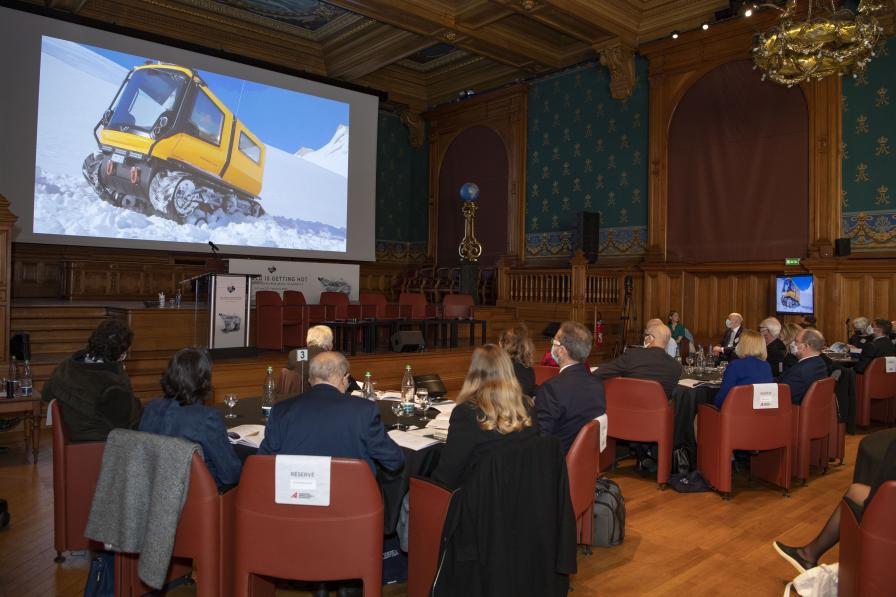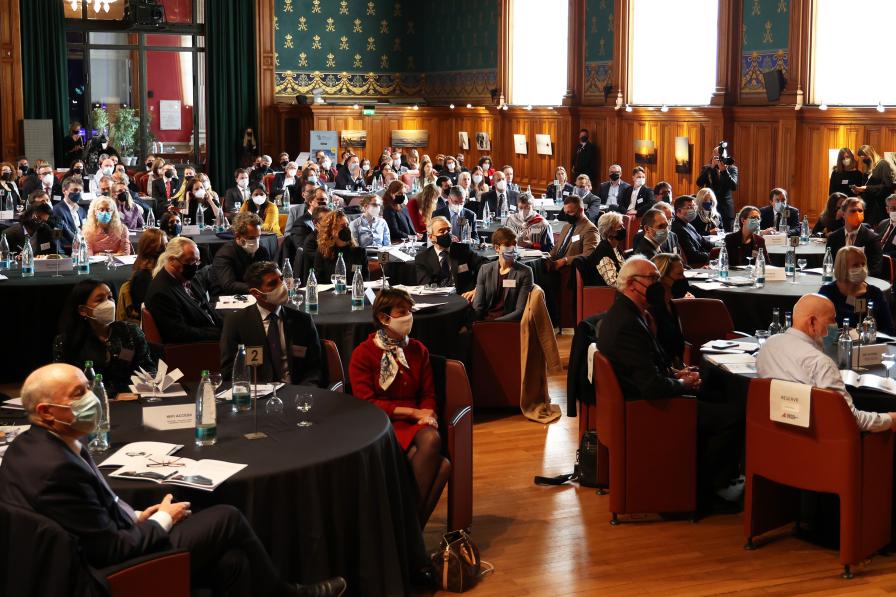The first day of the Scientific Symposium: From Arctic to Antarctic had a packed agenda. Participants conveyed the main message that urgent action is needed in the polar regions if humanity is to avoid the point of no return and irreversible damage to the planetary balance. Held under the theme “The cold is getting hot,” the Symposium started with an audio experience of the haunting effects of collapsing ice glaciers and breaking icebergs in the South Pole, by filmmaker Luc Jacquet.
Highlights of the first day included:
- a keynote address by HSH Prince Albert II of Monaco, who underscored the importance of scientific expertise and data to address the challenges in polar regions, moving towards a sustainable future, and cautioned against “selfish interests and short-sighted economic calculations”;
- keynote remarks by Antje Boetius, Director, Alfred Wegener Institute, and Jane Francis, Director, British Antarctic Survey, who, focusing on the Arctic and Antarctic, respectively, provided common key messages on the importance of the polar regions;
- the official signing of the Polar’s Initiative Memorandum of Understanding by research partners; and
- two in-depth panel discussions, focusing on the unprecedented altering of geophysical and living features of the polar regions, and the contributions of these changes to the global climate.
The keynote addresses included the messages related to:
- the need for additional international collaboration, including scientific missions in the polar regions, to provide the necessary scientific data for policy decisions and for monitoring transformations;
- the key role of polar/marine protected areas regarding reducing pressures on polar life from economic exploitation, pollution, noise, and other stressors;
- the need for increasing collaboration in the science-industry-society nexus, including contributions from Indigenous Peoples; and
- the fact that polar changes have a global impact, accompanied by the reality that polar regions are part of human history and culture, containing many secrets still to be discovered.
The high-level session further included opening remarks from representatives of convening partners: Robert Calcagno, Director General, Oceanographic Institute, Prince Albert I of Monaco Foundation; Olivier Wenden, CEO and Vice President, Prince Albert II of Monaco Foundation; Larry Hinzman, President, International Arctic Science Committee (IASC); and Jefferson Cardia Simões, Vice-President, Scientific Committee on Antarctic Research (SCAR). They emphasized, among others: the importance of cross-institutional and interdisciplinary collaboration to urgently address challenges in the polar regions; the need to increase public awareness, strengthening the voice of science and appropriately communicating scientific evidence; and that “the polar regions give us the last chance for a sustainable future; if we fail there, we will fail elsewhere.”
The first panel session in the afternoon under the theme “Understanding polar changes” focused on the rapid changes in the Arctic and Antarctic regions. Speakers discussed changes in: Arctic and Southern Oceans’ chemistry, temperature, and carbon pump functions; ice regimes, permafrost, and glaciers; and terrestrial and Ocean species, food webs, and ecosystems in the polar regions along with resulting social impacts.
The second panel session analyzed how changes in the polar regions are amplifying global climate changes. Panelists focused on how increased polar ice melt drives sea level rise worldwide. They also addressed altered oceanic circulation of temperature, carbon, and nutrients, due to the interconnectivity of the Arctic and Southern Oceans with other ocean basins. Both panels included a section where early career scientists shared their experiences and engaged in an interactive dialogue with panelists.
The day concluded with remarks by Olivier Poivre d’Arvor, French Ambassador for the Poles and Maritime Issues, who, highlighting the current turbulent political environment, underscored the need for international commitments and global cooperation to address polar challenges.
Symposium participants also had the opportunity to: discuss, via live video, with the Tara Ocean Foundation scientific schooner on its way back from an expedition in Antarctica; watch a short film on Venturi Antarctica, the first electric polar exploration vehicle; and watch another short film on the formidable living deep-sea ecosystem in Antarctica, by OceanX and BBC Earth. An evening reception offered participants further opportunities to exchange ideas and network.
To receive free coverage of global environmental events delivered to your inbox, subscribe to the ENB Update newsletter.
Selected Photos
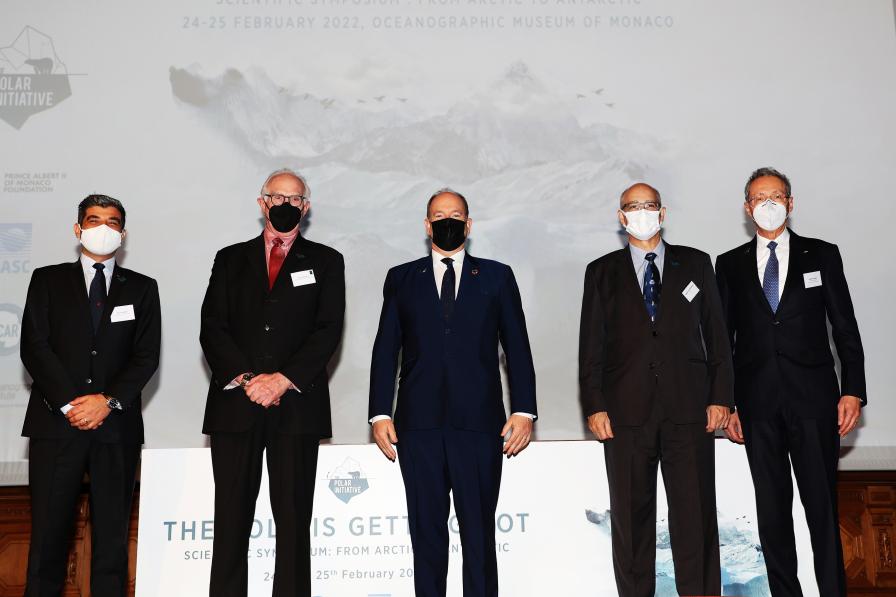
L-R: Olivier Wenden, CEO and Vice President, Prince Albert II of Monaco Foundation; Larry Hinzman, IASC; HSH Prince Albert II of Monaco; Jefferson Cardia Simões, Vice-President, SCAR; and Robert Calcagno, Director General, Oceanographic Institute, Prince Albert I of Monaco Foundation | | Photo Credit: JC Vinaj
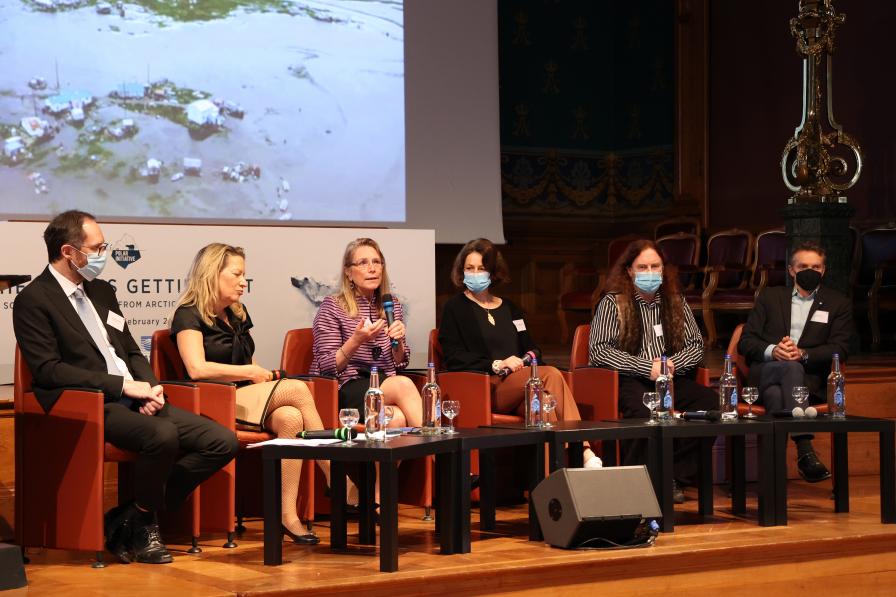
Panel on understanding polar changes. L-R: Jan-Gunnar Winther, UiT Arctic University, Norway; Antje Boetius, Director, Alfred Wegener Institute; Julie Brighan-Grette, University of Massachusetts-Amherst, US; Gabriela Schaepman-Strub, University of Zurich, Switzerland; Bruce Forbes, University of Lapland, Finland; and Rob de Conto, University of Massachusetts-Amherst, US | Photo Credit: JC Vinaj
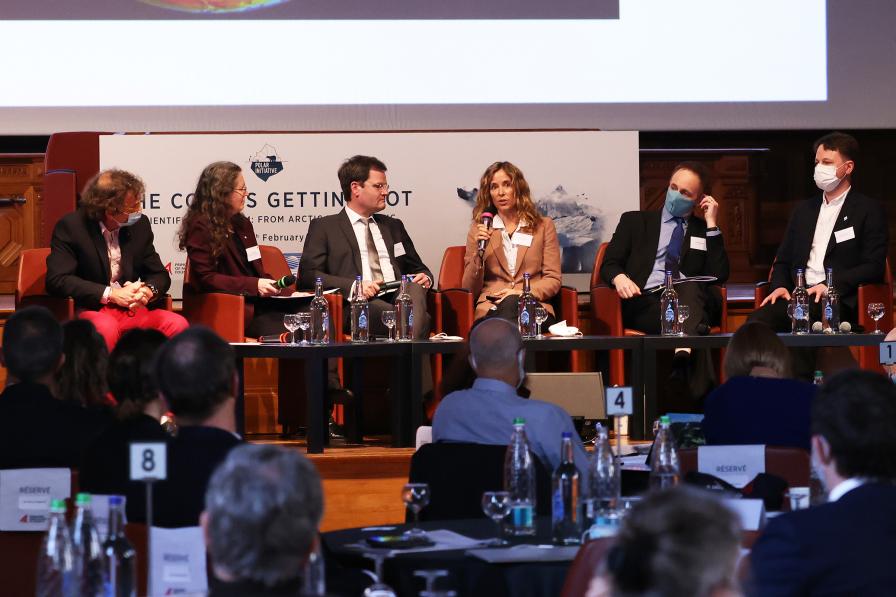
Panel on polar changes’ contributions to global climate. L-R Eric Rignot, University of California, Irvine, and Senior Research Scientist, NASA Radar Science and Engineering Section; Pam Pearson, Director, International Cryosphere Climate Initiative (ICCI); Markus Rex, Alfred Wegener Institute and MOSAiC Expedition Leader; Julienne Stroeve, University College London, UK; Michael Meredith, British Antarctic Survey; and Gustaf Hugelius, Stockholm University, Sweden. Photo Credit: JC Vinaj
